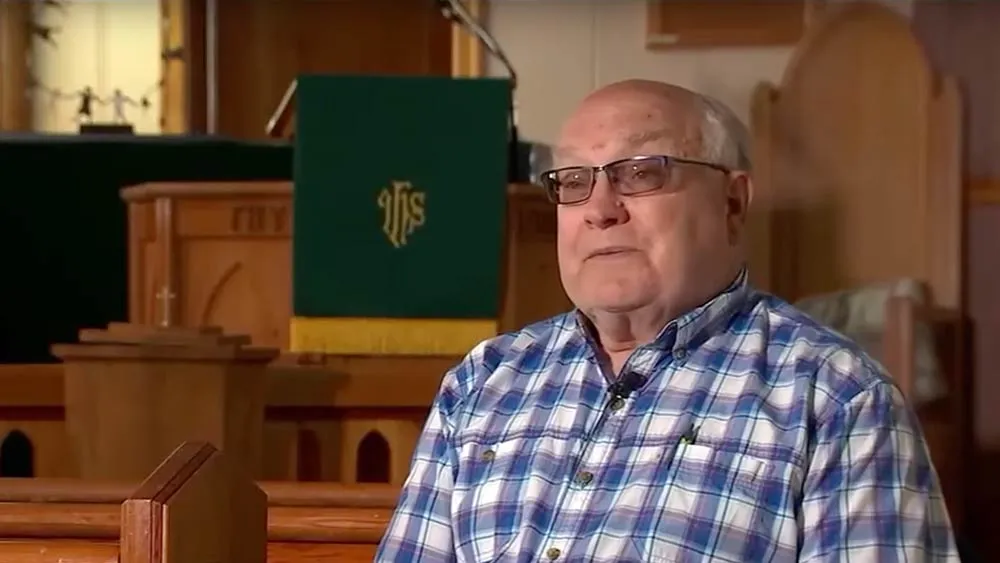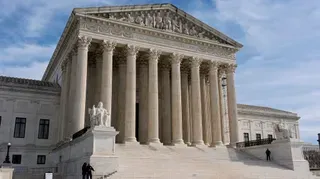September 4, 2013
The Short, Sad Life of Tommy Morrison
Winnie McCroy READ TIME: 4 MIN.
Tommy Morrison was just a few hours away from a comeback bout that was supposed to lead him to Mike Tyson when he got the news inside the crowded casino at the MGM Grand hotel.
Chances are he already knew what was coming. A few days earlier he had refused to take a blood test mandated by Nevada boxing authorities, citing religious objections. He took it only after being told that without it he would not fight.
Morrison had tested positive for the HIV virus. Instead of fighting for the heavyweight title, he would now be in for the fight of his life.
It seemed impossible. The blonde Adonis who had beaten the fearsome George Foreman for the heavyweight title and starred with Sylvester Stallone in "Rocky V" was too fit, too strong, to carry the dreaded virus. Magic Johnson testing positive a few years earlier was shocking enough, but now a heavyweight contender with HIV, too?
Morrison quickly got on a plane back to his native Oklahoma. The fights that night went on without him, and the crowd booed when told he wasn't fighting for undisclosed medical reasons.
Morrison would end up living another 17 years before he died Sunday night in a Nebraska hospital at the age of 44. But life as he knew it was over.
There would be no Tyson fight. No more multimillion dollar paydays. No more movies with Stallone.
"This is not a death sentence, by any means," he insisted a few months later.
But for the troubled Morrison, it was. He spent much of the remainder of his life in a fog of drugs and denial. Occasionally he would resurface, like he did in 2007 when he tried to resurrect his boxing career at the age of 38 in a fight for a few hundred dollars at a racetrack in West Virginia.
He had once blamed his HIV diagnosis on a fast and reckless lifestyle. Now he made an even more outlandish claim - that he never had the virus.
"The bottom line is we passed every test on the market, even one they don't have on the market," Morrison told me a few days before the fight in West Virginia. "That tells me it was never there."
Drugs and denial. They combined to kill Morrison just as surely as the HIV he claimed he never had.
A few weeks ago, his mother told an ESPN.com writer that Morrison still believed he never had the virus. But she said he had full-blown AIDS and she was hoping that he would die peacefully.
He had long since blown through the estimated $16 million he made in the ring, long since given up on the idea of fighting again. Life wasn't a Rocky movie, and there would be no miracle saving him at the end.
Twenty years earlier, his future seemed to have no limit. With flowing blonde hair, a chiseled body and a powerful left hook, he was a star in the heavyweight division, carefully guided by promoter Bob Arum into a title fight with George Foreman.
"If I don't win," Morrison says, "people will throw me in the heap with Duane Bobick, Jerry Quarry and Gerry Cooney. As a white fighter, you get twice as much criticism. You have more to prove than black or Hispanic fighters."
But on June 7, 1993 he did win, outboxing Foreman with a smart and disciplined game plan that took Foreman's vaunted power away. Boxing had a fresh young star, and he was welcomed back to his hometown of Jay, Okla., with a huge sign near the country store proclaiming the town the birthplace of the heavyweight champ.
But "The Duke" - he claimed a distant kinship with John Wayne - would get knocked out in the first a few months later by Michael Bentt in a homecoming bout in Tulsa. He took a bloody beating from Lennox Lewis two years later, but signed with Don King and was being groomed for a fight with Tyson when he was given a tuneup fight against journeyman Art Weathers in February 1996.
Nevada was one of the few states testing for HIV at the time, and Morrison was sent to a doctor for a prefight physical and blood test. State boxing officials weren't sure why he didn't want his blood taken, only that he would not be allowed to fight unless it was.
The positive test stunned boxing, a sport that was especially vulnerable to HIV transmission because of close proximity of fighters to each other and the very real possibility of cuts and blood mixing. Mills Lane, who refereed Morrison's bloody fight with Lewis a few months earlier, got himself tested the day after Morrison's result was announced to make sure he hadn't gotten the virus from Morrison's blood.
Magic Johnson called Morrison a few days later, urging him to stay upbeat and fight the disease. Johnson said Morrison was listening, but he wasn't sure he had heard.
The folks in Jay, meanwhile, took the big sign down. Morrison didn't blame them, saying most people thought HIV was "a loser's virus."
His hometown had deserted him. His career was over.
The long downward spiral had begun.
Winnie McCroy is the Women on the EDGE Editor, HIV/Health Editor, and Assistant Entertainment Editor for EDGE Media Network, handling all women's news, HIV health stories and theater reviews throughout the U.S. She has contributed to other publications, including The Village Voice, Gay City News, Chelsea Now and The Advocate, and lives in Brooklyn, New York.







